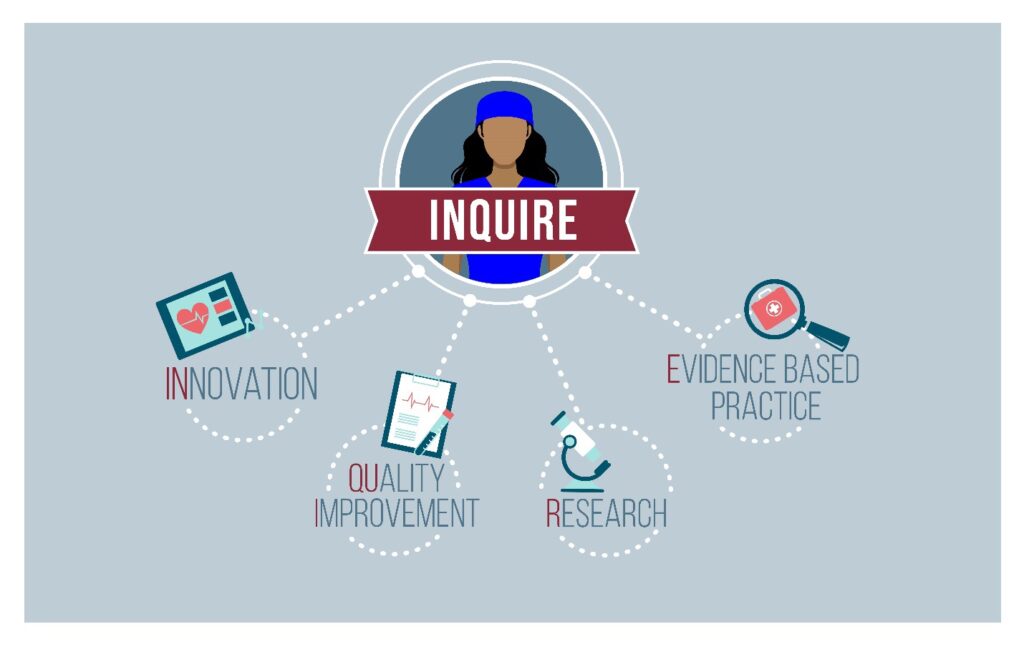One of the most critical spheres of nursing practice is the involvement in quality improvement, evidence-based practice, research, and innovation. The importance of these activities cannot be overstated; the Institute of Medicine (now National Academies of Science) 2011 report, The Future of Nursing: Leading Change, Advancing Health, essentially noted that healthcare could not be advanced without nurses’ active engagement in these activities and that governing bodies and organizations must be supportive in programs to advance nursing education, professional development, and expansion of practice. The most basic form of support for quality improvement, evidence-based practice, research and innovation is through a Culture of Inquiry.
A Culture of Inquiry is achieved through profound support for question-asking and divergent thinking; the status quo is challenged and new creative solutions are offered to plaguing problems. Jaynelle Stichler (2018) notes in her article that “it is critical for [leadership] to foster a culture of inquiry where the team can critically discuss questions related to healthcare design, patient care, and patient and provider safety.” The focus is more on asking the right questions, rather than finding solutions. Common questions that are encouraged in a Culture of Inquiry include:
What is this? Why do we do this? Why did that happen? How do I do this? Should we be doing this? Can we do something new? How can I do this better? What do other organizations do?
UAMS Nursing Leadership supports a Culture of Inquiry through a model aptly named “INQUIRE”. INQUIRE was designed in 2020 to support a Culture of Inquiry for nursing to critically evaluate nursing care and practices. INQUIRE provides the framework needed for nurses to investigate clinical questions, evaluate current practices, and innovate new solutions. As nurses, we are responsible for promoting and engaging in a Culture of Inquiry to advance the profession of nursing and the outcomes of patients.

INnovate
Creation of new theories, practices, tools, or equipment to meet the needs of patients and nursing
QUality Improvement
Improvement in current, sound practices and models to promote safety, reduce inefficiencies and create better outcomes for patients
Research
Continually remaining in the forefront of advancing nursing practice through evaluating and developing new knowledge of nursing interventions in the prevention or treatment of disease with well-designed nursing research studies
Evidence Based Practice
Systematically reviewing and critically appraising the literature and implementing new practice when indicated
Take a moment to consider: What are the right questions to ask to improve patient care and nursing practices?
